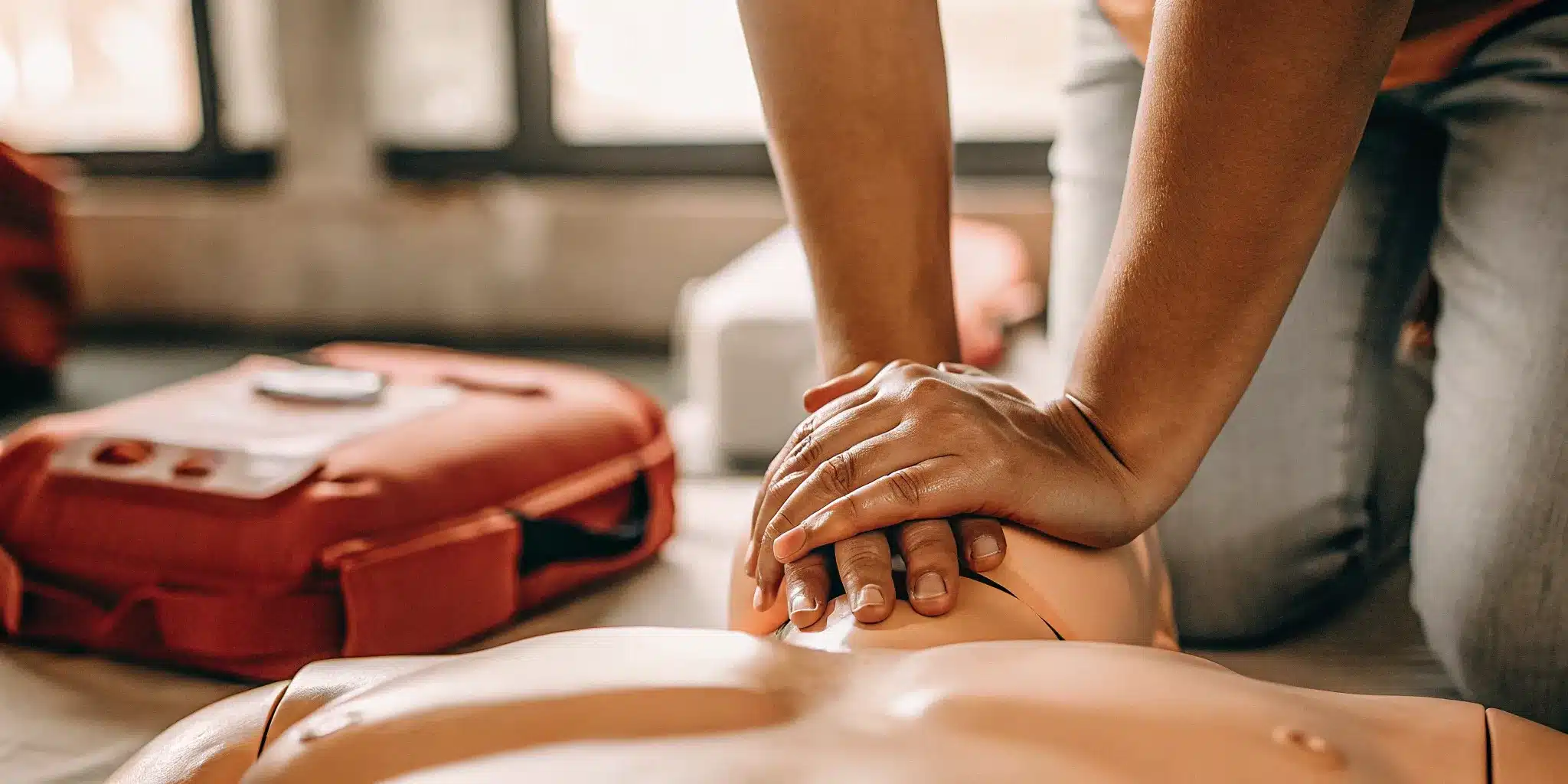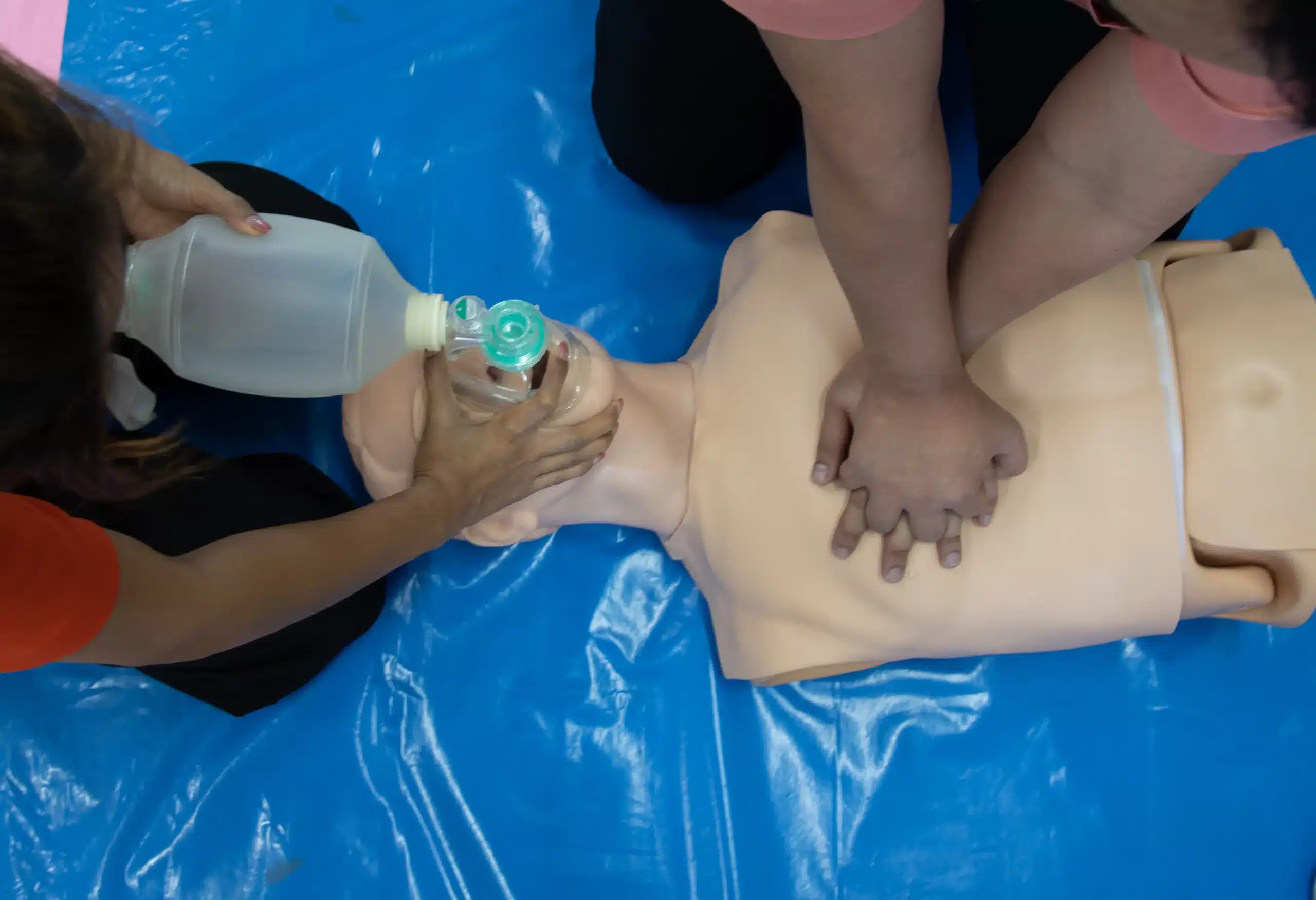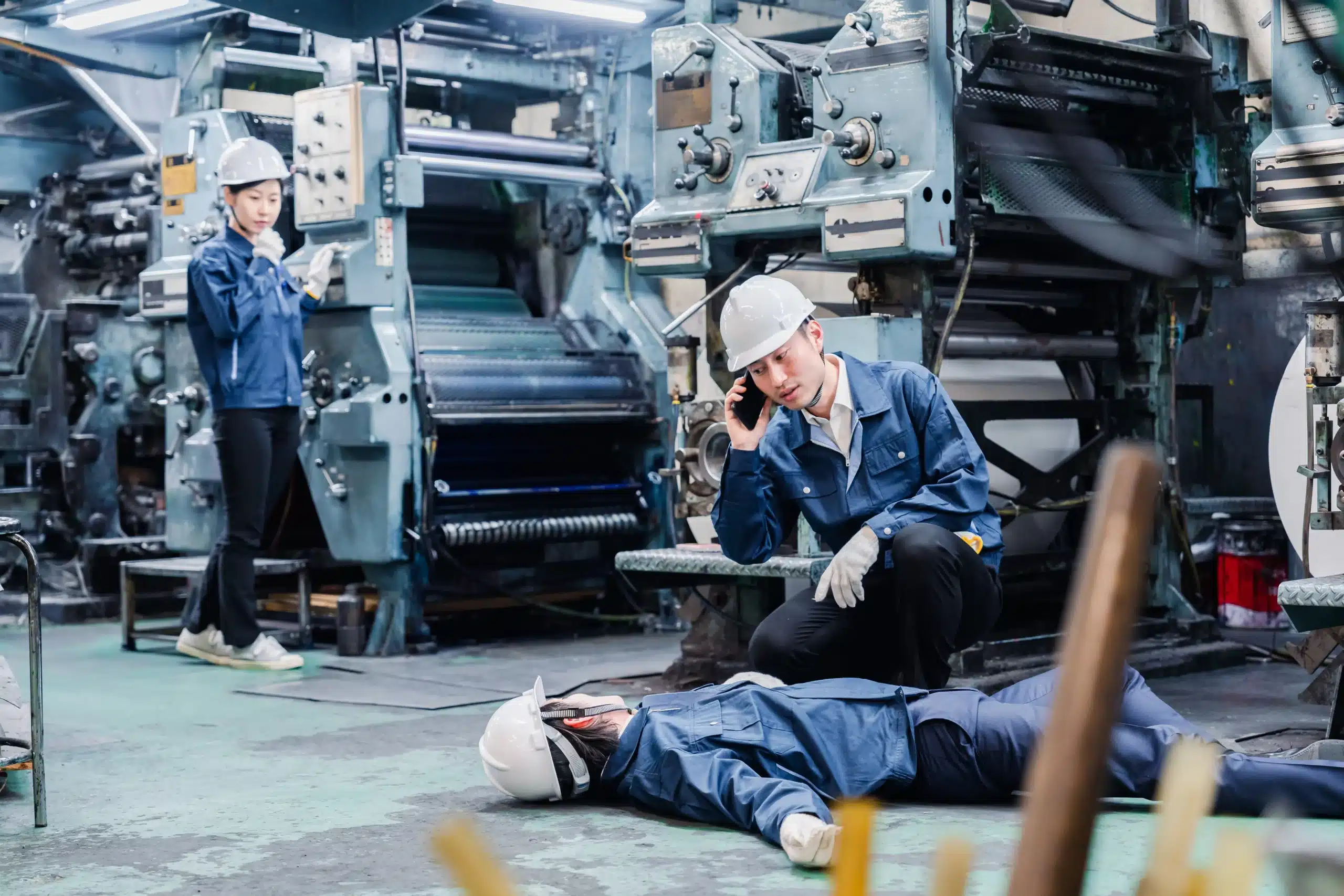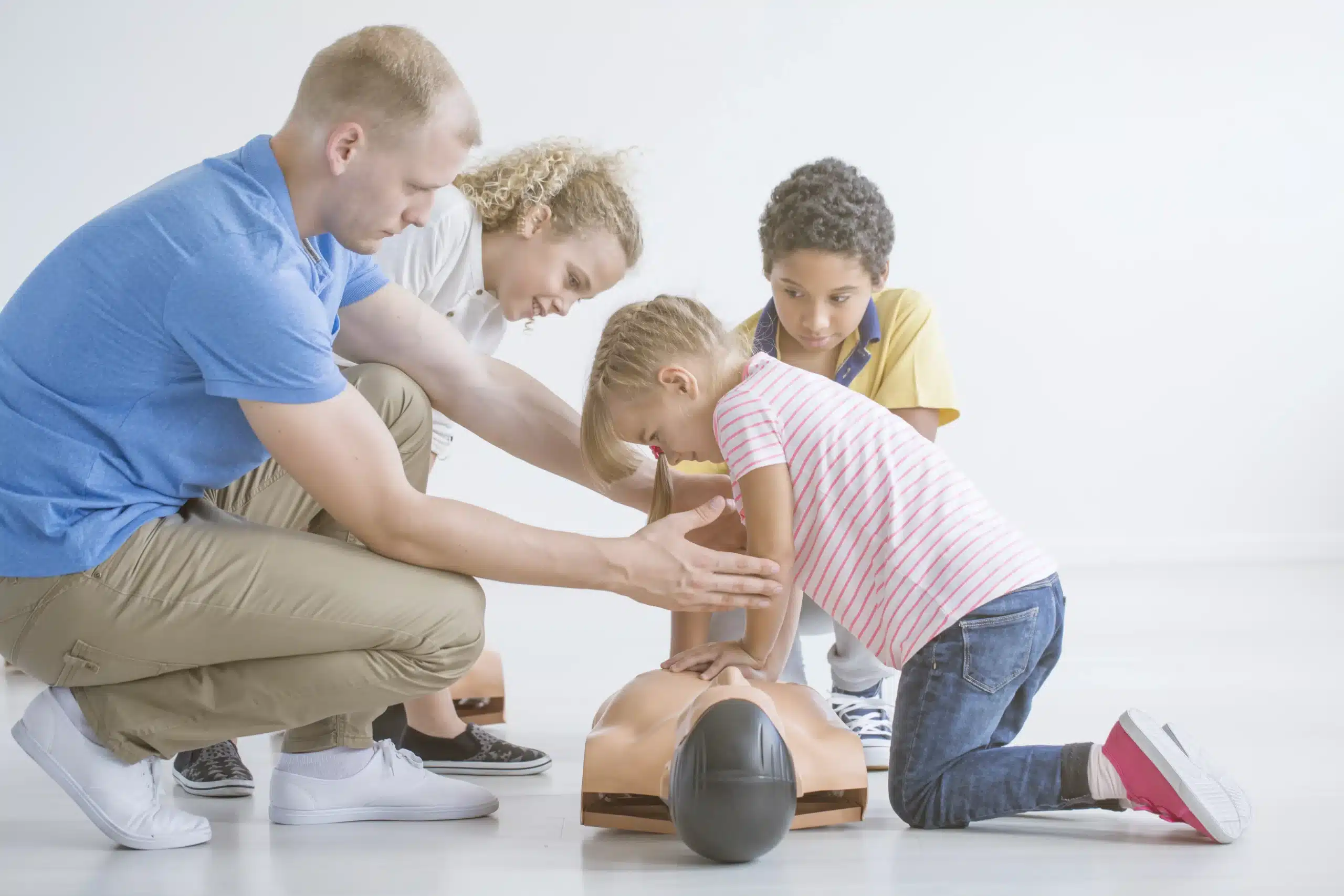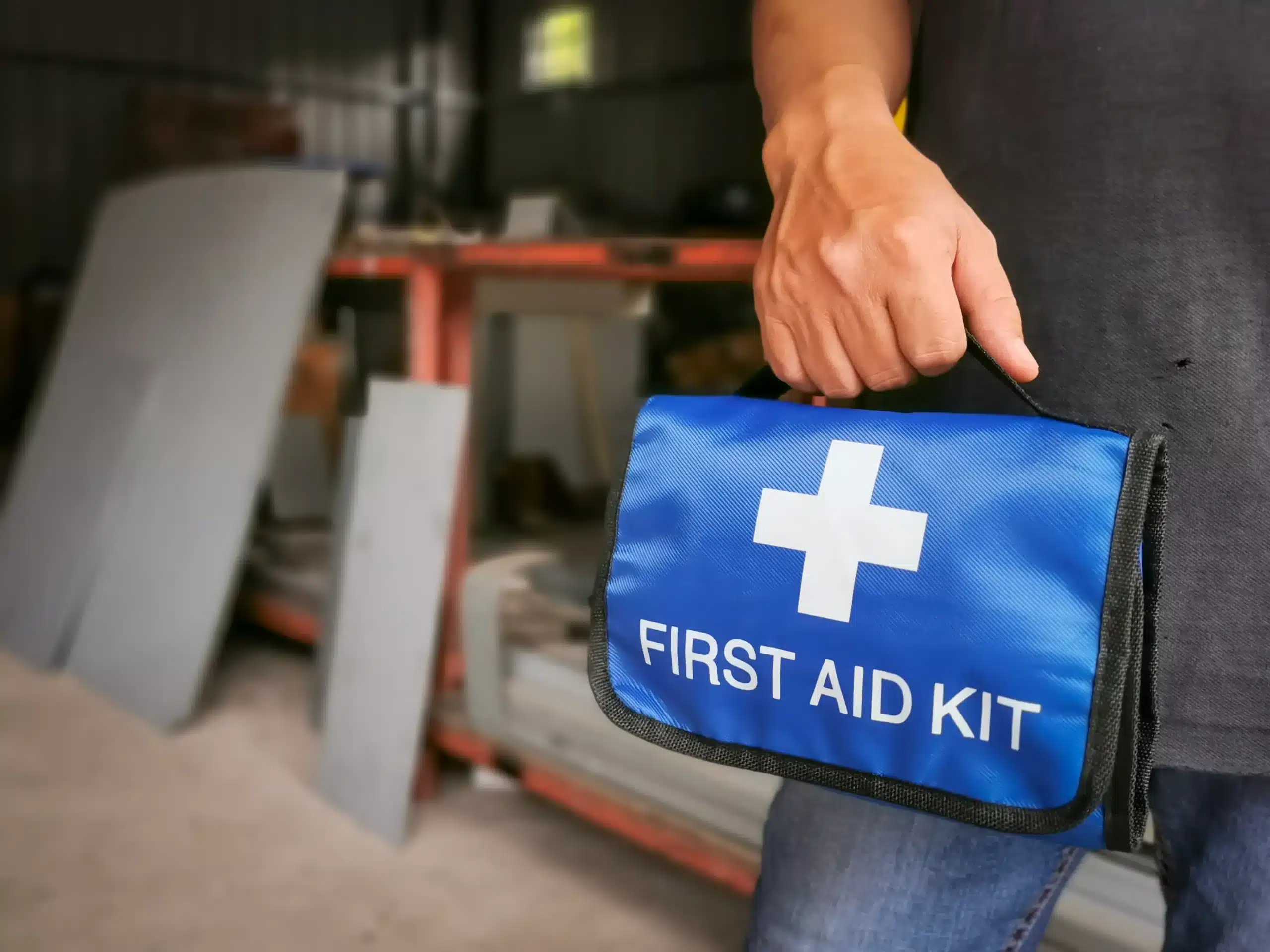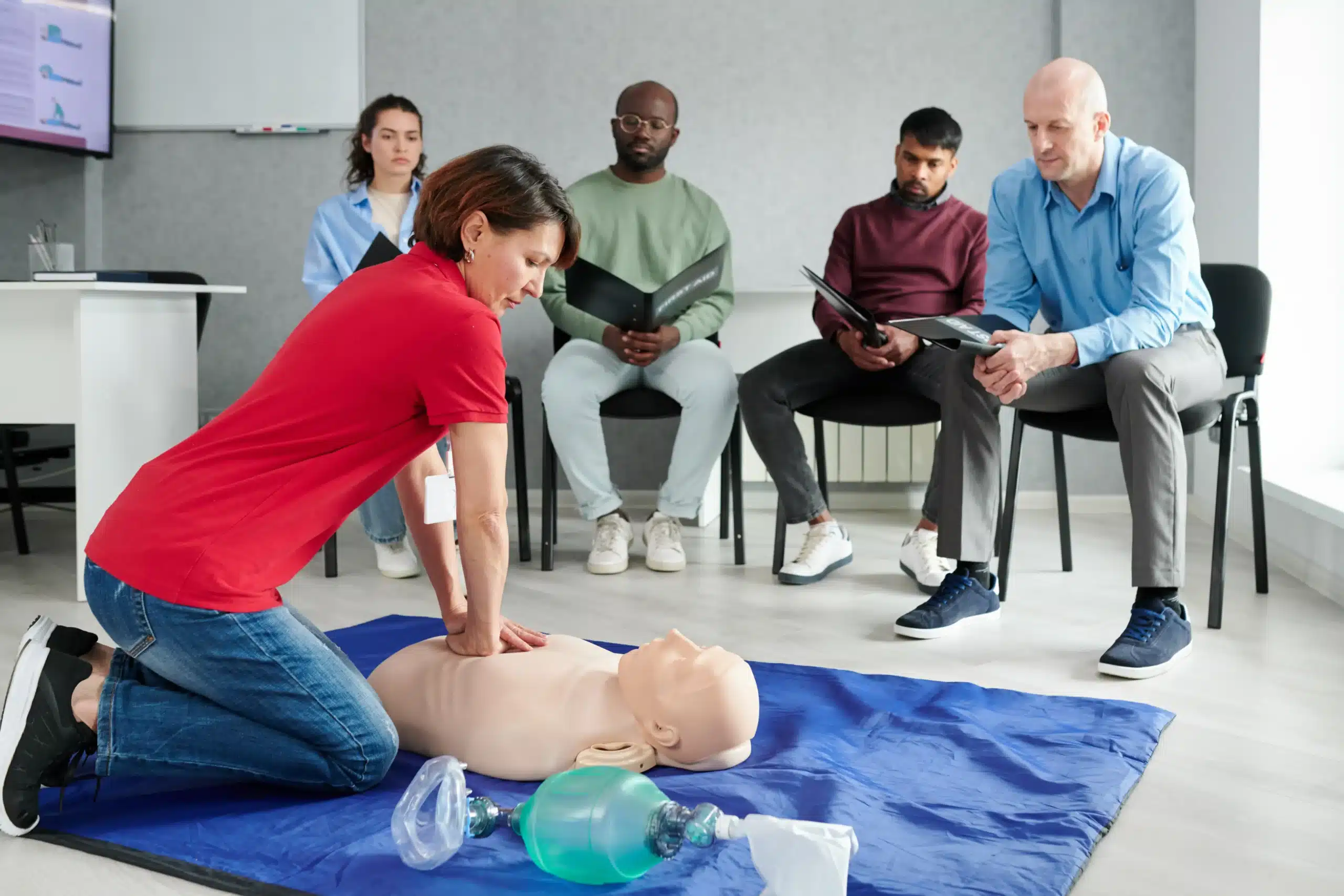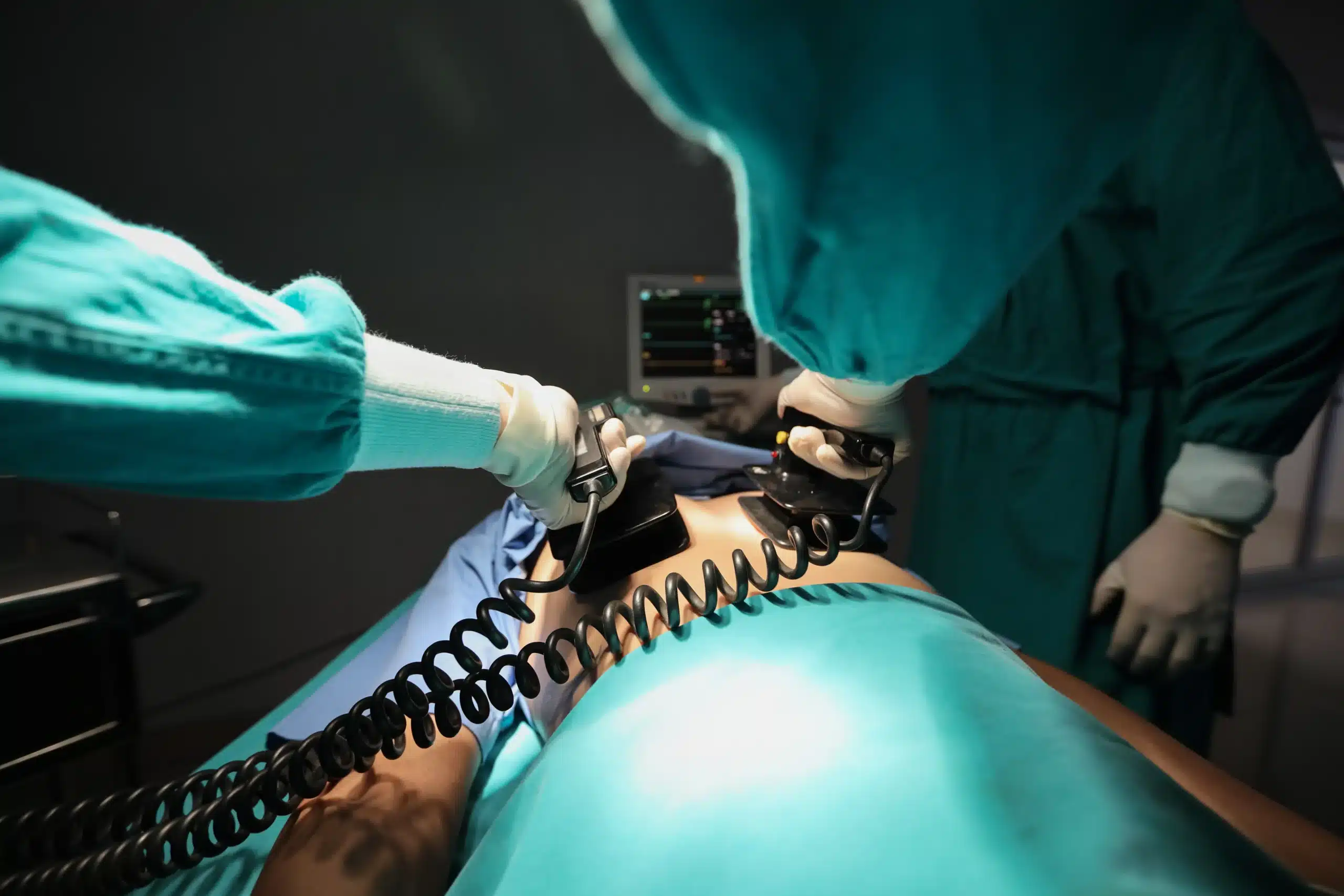Emergencies can happen anytime, anywhere. Would you know what to do if someone near you experienced a sudden cardiac arrest? CPR certification in San Jose empowers you with the life-saving skills to respond confidently in such critical situations. This training provides the knowledge and hands-on practice necessary to perform CPR effectively, potentially making the difference between life and death. Whether you’re a healthcare professional, work with children, or simply want to be prepared for the unexpected, this article explores the importance of CPR certification in San Jose, the various types of courses available, and how you can get certified. We’ll also discuss the costs, schedules, and top providers in the area, including resources like Sunnyvale CPR Classes, to help you find the perfect training program to fit your needs.
Key Takeaways
- Find the right CPR class for your needs: Whether you’re a healthcare professional, work with children, or simply want to be prepared, certifications from basic CPR to ACLS and PALS are available. Choose the one that aligns with your personal and professional goals.
- Select a reputable training provider: Look for accreditation, qualified instructors, comprehensive materials, and flexible scheduling options. Consider factors like cost, location, and available discounts when making your decision.
- Maintain your CPR skills: Certification is typically valid for two years. Stay current with the latest guidelines and best practices by taking renewal courses and seeking continuing education opportunities.
What is CPR Certification in San Jose?
CPR certification in San Jose equips you with the skills to handle medical emergencies. This credential confirms your ability to perform cardiopulmonary resuscitation and often includes training in other life-saving techniques like using an automated external defibrillator (AED) and providing first aid. Getting certified involves completing a course led by certified instructors, covering essential techniques and best practices. These CPR classes usually involve hands-on practice and testing to ensure you can perform CPR effectively in a real-life situation.
While CPR certification is essential for healthcare professionals, it’s also incredibly valuable for anyone wanting to be prepared for an emergency. Knowing CPR can truly make a difference in situations like cardiac arrest, near-drowning, or choking. Several organizations in San Jose offer CPR certification, including the American Red Cross and the American Heart Association. You’ll find a range of courses available, from basic CPR for the community to advanced certifications like BLS (Basic Life Support) and ACLS (Advanced Cardiovascular Life Support) designed for healthcare providers. Many courses also incorporate first aid training, broadening your skillset for various medical scenarios. For a more detailed look at the different options, check out our section on CPR class types. We also offer a low price guarantee for our courses in Sunnyvale, conveniently serving the greater San Jose area.
CPR Class Types & Skills You’ll Learn
Knowing which CPR class is right for you depends on your background and goals. Here’s a breakdown of common CPR class types and the skills you’ll gain in each.
Basic CPR for Everyone
Basic Life Support (BLS) is designed for everyone, including those with no medical background. These courses teach fundamental skills like performing high-quality CPR, using an automated external defibrillator (AED), and relieving choking in adults, children, and infants. This foundational knowledge empowers you to respond effectively in various emergencies. You’ll learn how to recognize the signs of a cardiac arrest and provide immediate assistance until professional help arrives. Learn more about BLS certification.
BLS for Healthcare Professionals
While the core principles of CPR remain consistent, BLS for healthcare providers like doctors, nurses, and paramedics includes additional skills and knowledge. This BLS course for healthcare providers emphasizes high-quality CPR and effective team dynamics in both pre-hospital and in-facility settings. It covers advanced airway management techniques, bag-mask ventilation, and the use of advanced equipment.
ACLS & PALS Certifications
Advanced Cardiovascular Life Support (ACLS) and Pediatric Advanced Life Support (PALS) certifications are crucial for healthcare professionals dealing with complex cardiovascular emergencies. ACLS certification focuses on managing adult cardiac arrest, stroke, and myocardial infarction, while PALS addresses the specific needs of critically ill infants and children. More information on the differences between BLS and ACLS can be found in this informative article. These courses involve extensive training in advanced life-saving procedures, including ECG interpretation, pharmacology, and team-based resuscitation.
First Aid & AED Training
First Aid training equips you with practical skills to handle a wide range of medical situations, from minor cuts and burns to more serious injuries like fractures and allergic reactions. Learning how to control bleeding, bandage wounds, and administer basic first aid can make a significant difference in an emergency. Often paired with CPR training, First Aid and AED training provides comprehensive knowledge and skills to respond confidently to various medical emergencies. The American Red Cross offers a Basic Life Support course that includes these essential skills.
Top CPR Certification Providers
Choosing the right CPR certification provider is an important step. Here are a few reputable options to consider in the San Jose area:
Sunnyvale CPR Classes (Safety Training Seminars)
Sunnyvale CPR Classes, offered by Safety Training Seminars, focuses on providing affordable and comprehensive CPR and first-aid training. They offer a range of courses, including BLS, ACLS, PALS, CPR, First Aid, EMSA Child Care Health & Safety, and the RQI program for healthcare providers. A key benefit of choosing Sunnyvale CPR Classes is their commitment to offering competitive prices in Santa Clara County, along with certification cards valid for two years. They also offer discounts for group classes and have a low price guarantee.
American Red Cross
The American Red Cross is a well-known provider of CPR and first aid classes in San Jose. Their courses are taught by experts and offer valuable, job-relevant skills that meet OSHA compliance standards. The Red Cross offers in-person classes and a blended online/in-person format called “Simulation Learning.” Certification is valid for two years, and all courses are developed and reviewed by the Red Cross Scientific Advisory Council.
American Heart Association
The American Heart Association also certifies CPR training programs. You can find AHA-certified courses through various training centers, such as the Emergency and Health Training Center, which offers CPR, BLS, ACLS, PALS, and First Aid classes in San Jose and the surrounding Bay Area.
Emergency and Health Training Center
The Emergency and Health Training Center offers courses taught by experienced instructors, often with backgrounds as EMTs or other medical professionals. They provide two-year certifications and offer same-day certification options. This training center emphasizes hands-on, engaging, and affordable training.
CPR Class Formats & Schedules
Finding the right CPR class format and schedule is key to completing your training. Whether you prefer hands-on learning, the flexibility of online courses, or a combination of both, various options cater to different learning styles and busy schedules. We’ll explore the most common CPR class formats available in San Jose and surrounding areas like Sunnyvale and Santa Clara.
In-Person Training
Traditional in-person CPR classes provide a structured learning environment with direct interaction with a certified instructor. These classes offer hands-on practice and real-time feedback, allowing you to develop and refine your CPR skills. Instructors demonstrate techniques, answer questions, and guide you through simulated scenarios. The American Red Cross offers in-person CPR and First Aid training in San Jose. This format is ideal for those who learn best through direct interaction and hands-on practice. Sunnyvale CPR Classes also offers a variety of in-person courses, including BLS and ACLS certifications.
Online & Blended Learning
Online and blended learning CPR courses offer flexibility and convenience. Blended learning combines online coursework with in-person skills sessions. You can study the theoretical aspects of CPR online at your own pace, then attend a hands-on session to practice your skills and receive instructor feedback. The Red Cross offers this blended learning format for CPR certification. ACLS training is also available in blended learning formats. This approach allows you to fit CPR training into your schedule more easily.
Flexible Schedules
CPR training centers offer flexible schedules to accommodate various needs. Weekend and evening classes are often available, making it easier for working professionals and students to attend. Check a training center’s website for dates and times. Many providers offer both in-person and blended learning options. Sunnyvale CPR Classes is known for its flexible scheduling and offers discounts for group classes.
Get CPR Certified: The Process
This section breaks down the steps involved in getting CPR certified, from the training itself to the exams and finally receiving your certification. We’ll cover what you can expect during each stage of the process.
What Happens During Training?
CPR training equips you with the life-saving skills to handle cardiac and breathing emergencies. Instructors demonstrate essential techniques, walking you through everything from recognizing a cardiac arrest to performing chest compressions and giving rescue breaths. You’ll learn to assess the situation, deliver high-quality CPR, and work effectively in a team. BLS courses often emphasize team dynamics and best practices for various settings. Whether you’re taking a basic CPR course or a more advanced course like ACLS, the training provides the knowledge and skills to respond confidently to emergencies involving adults, children, and infants.
Exams & Skills Assessments
CPR certification involves both written exams and hands-on skills assessments. The written exam tests your understanding of the training material. The skills assessment requires you to demonstrate your CPR proficiency and other techniques on a manikin. Blended learning options combine online coursework with in-person skills sessions, offering flexibility. Requirements for exams and skills assessments vary depending on the certification level. For example, ACLS training is more comprehensive, focusing on complex cardiovascular emergencies, resulting in more advanced assessments.
Getting Your Certification
After successfully completing the training, exams, and skills assessments, you’ll receive your CPR certification card. This card validates your CPR skills and knowledge. The type of certification depends on the course taken. BLS certification is generally appropriate for a broader audience, while ACLS certification is designed for healthcare providers directly involved in cardiovascular emergencies. Both are valuable and empower individuals to act in critical situations. Remember to check the specific requirements for your chosen certification and keep your skills current through renewal courses. Consider checking out our low price guarantee for the best value on your CPR training.
CPR Certification: Validity & Renewal
How Long is Certification Valid?
CPR certifications, like those for Basic Life Support (BLS), are typically valid for two years. This standard timeframe, set by organizations like the American Heart Association and the Red Cross, ensures rescuers maintain up-to-date knowledge and skills. Knowing your certification’s expiration date is crucial for staying prepared and compliant with any workplace or professional requirements. Mark your calendar or set a reminder to avoid letting your credentials lapse.
Renew Your Certification
Before your certification expires, renew your CPR training. Look into convenient options like discount group classes. Renewal courses refresh your skills and cover updates to CPR guidelines. These refresher courses are often shorter than the initial certification class, focusing on key techniques and critical updates. Check with your certifying organization or a training center like Sunnyvale CPR Classes for available renewal options and schedules. Planning ahead ensures a smooth transition and keeps your lifesaving skills sharp.
Stay Current
CPR guidelines and best practices can evolve, so staying current with the latest recommendations is vital for effective CPR delivery. Organizations like the Red Cross regularly review and update their curriculum based on scientific advancements and research. Even if your certification isn’t due for renewal yet, consider participating in continuing education opportunities or subscribing to relevant publications to stay informed about any changes. This proactive approach ensures you’re always equipped with the most current and effective lifesaving techniques. For healthcare professionals, staying informed on advancements in fields like Advanced Cardiovascular Life Support (ACLS) is especially important, given the complex nature of patient care. Consider exploring resources like the RQI program to maintain and enhance your resuscitation skills.
CPR Certification Costs & Discounts
CPR certification costs in San Jose vary depending on the course type and provider. Understanding typical price ranges and available discounts helps you budget effectively for your training.
Course Pricing
Basic Life Support (BLS) certification, essential for healthcare providers and anyone interested in basic life-saving skills, generally starts around $70. More advanced certifications like Advanced Cardiovascular Life Support (ACLS) typically range from $140 to $190. Pediatric Advanced Life Support (PALS) courses, designed for healthcare professionals working with infants and children, are usually priced similarly to ACLS courses, often around $190. For the most accurate pricing on BLS and ACLS certifications, check directly with the training provider, such as Safety Training Seminars, as prices can differ.
Group Rates & Offers
Many CPR training centers, including Sunnyvale CPR Classes, offer discounts for group bookings. This is a smart way to reduce costs if you’re coordinating training for your workplace, community group, or a group of friends. Some providers even offer on-site training, eliminating travel time and further streamlining the process. Check with your chosen provider about group discounts and on-site training availability.
Student & Healthcare Discounts
Students and healthcare professionals often qualify for discounted rates on CPR certification courses. These discounts recognize the importance of CPR skills in these fields and make training more accessible. If you’re a student or work in healthcare, inquire about potential discounts when you register. Safety Training Seminars is known for its commitment to offering competitive prices, so check their website for current offers. They also offer the RQI program, an innovative approach to high-quality CPR training for healthcare professionals.
Choose the Right CPR Course
Knowing which CPR class is right for you can feel overwhelming with so many options. This section breaks down how to choose the best fit based on your individual needs and goals. We’ll cover everything from basic CPR training to advanced certifications like ACLS and PALS.
Assess Your Needs
First, consider why you want CPR certification. Are you required to have it for your job, or are you preparing for emergencies? Basic Life Support (BLS) certification is often sufficient for non-medical professionals seeking general knowledge. It covers core CPR skills and is a great starting point. Healthcare providers, like doctors and nurses, typically need Advanced Cardiovascular Life Support (ACLS) certification. ACLS training addresses complex cardiovascular emergencies and builds upon the foundational skills taught in BLS. Consider your current situation and what you hope to gain from the training.
Compare Course Content & Skills
BLS provides the fundamental skills needed to respond to life-threatening situations. You’ll learn chest compressions, rescue breaths, and how to use an automated external defibrillator (AED). ACLS courses expand on these basics, covering topics like airway management, rhythm recognition, and pharmacology related to cardiac arrest. Pediatric Advanced Life Support (PALS) focuses on the unique needs of infants and children. Understanding these differences in course content will help you make an informed decision. Think about the specific skills you want to develop and which course aligns best with those goals.
Match Certification to Career Goals
Your career aspirations play a significant role in choosing the right certification. If you’re pursuing or currently have a career in healthcare, ACLS is often a requirement. For those working with children, like teachers or childcare providers, PALS certification, in addition to BLS, can be incredibly valuable. Even if CPR isn’t mandatory for your profession, having this skill can enhance your resume and demonstrate your commitment to safety. Consider your current role and future goals when selecting a CPR course to ensure it aligns with your professional development. At Sunnyvale CPR Classes, we offer a range of courses to meet diverse needs, including BLS and RQI for healthcare professionals. We also offer group discounts and a low price guarantee.
Find a Reputable CPR Trainer
Finding the right CPR trainer is crucial for a valuable learning experience. Here’s what to look for:
Accreditation & Recognition
A reputable training organization should have accreditation from a nationally recognized body. This ensures the program meets industry standards and provides effective training. For example, the American Red Cross offers CPR and First Aid classes in San Jose, providing job-relevant skills that are OSHA compliant. Look for similar credentials when choosing your trainer. Accreditations demonstrate a commitment to quality and give you confidence in the training you receive. Sunnyvale CPR Classes maintains similar high standards, ensuring participants receive comprehensive and up-to-date training.
Instructor Qualifications
The instructor’s qualifications directly impact the quality of your training. Instructors should be certified and ideally have practical experience in emergency medical services (EMS) or other medical fields. CPR Training Center in San Jose highlights the practical experience of their certified instructors. Inquire about the instructors’ backgrounds and experience to ensure they possess the necessary expertise. Experienced instructors can offer real-world insights and answer your questions effectively. Consider also whether multilingual instructors are available if you require instruction in a language other than English. Safety Training Seminars understands the importance of qualified instructors and ensures their trainers meet rigorous standards.
Course Materials & Resources
Comprehensive course materials and resources are essential for effective learning and retention. Look for programs that offer access to online resources, manuals, and refresher activities. The American Red Cross provides such resources, allowing participants to reinforce their learning after the course. Access to high-quality materials can significantly enhance your understanding and retention of CPR techniques. Ensure the program you choose offers resources that fit your learning style and provide ongoing support.
Why Get CPR Certified in San Jose?
Knowing CPR can make a real difference in critical situations. Whether you’re a healthcare professional, work with children, or simply want to be prepared, CPR certification offers significant benefits. Here in San Jose, being CPR certified is a valuable asset, both personally and professionally.
Meet Workplace Requirements
Many healthcare professions require CPR certification. Basic Life Support (BLS) training, for example, provides healthcare providers with the essential skills to respond to cardiac arrest and other life-threatening emergencies. This standardized training ensures a baseline level of competency and helps medical professionals deliver effective care. If you’re considering a career in healthcare in San Jose, obtaining your BLS certification is often a crucial first step. Even in non-medical fields, having CPR-certified employees enhances workplace safety and shows a commitment to employee well-being.
Prepare for Emergencies
Emergencies can happen anytime. Being equipped to handle these situations can significantly impact the outcome. CPR training prepares you to respond effectively, providing immediate care until professional help arrives. The skills you learn, such as high-quality CPR, empower you to act confidently and potentially save a life. CPR classes teach you how to assess a situation, perform chest compressions, and provide rescue breaths—giving you the tools to make a difference when it matters most.
Improve Community Safety
CPR-certified individuals contribute to a safer community. Bystanders who know CPR can provide immediate assistance during emergencies, increasing the chances of survival. Learning CPR isn’t just about individual preparedness; it’s about creating a network of skilled responders within the community. When more people are trained, the likelihood of someone nearby being able to help in a medical crisis increases. This community-wide preparedness can significantly improve outcomes and create a more resilient and safer San Jose. Consider checking for group discounts for CPR classes to make training more accessible for your community group or workplace.
Related Articles
- RQI Classes in Sunnyvale, CA – Sunnyvale CPR Classes
- Northern CA CPR Directory – Sunnyvale CPR Classes
- CPR, BLS, ACLS, PALS, & First-aid Classes in Sunnyvale, CA
- Debunking Common CPR Myths
- Discount Group Classes – Sunnyvale CPR Classes
Frequently Asked Questions
What’s the difference between BLS and ACLS CPR certification?
BLS certification focuses on the fundamentals of CPR and is suitable for anyone, including those without medical backgrounds. ACLS certification builds upon BLS, delving into more advanced techniques for healthcare professionals managing complex cardiovascular emergencies. Think of BLS as the foundation and ACLS as specialized training for specific medical roles.
How do I choose the right CPR class for me in San Jose?
Consider your current profession and future goals. If you’re in healthcare, ACLS is likely necessary. For non-medical roles or general preparedness, BLS is a great starting point. Also, think about whether you prefer in-person classes, blended learning (online and in-person), or purely online options. Your learning style and schedule will influence which format works best. Check out Sunnyvale CPR Classes, they offer a variety of options and serve the San Jose area.
How much does CPR certification cost, and are discounts available?
Costs vary based on the course type and provider. BLS classes are generally more affordable than ACLS or PALS. Many providers offer discounts for groups, students, and healthcare professionals. It’s always a good idea to contact the training center directly to inquire about specific pricing and any applicable discounts. Sunnyvale CPR Classes is known for its competitive pricing and low price guarantee, so they’re worth checking out.
What can I expect during a CPR training class?
Expect a combination of instruction, demonstrations, and hands-on practice. You’ll learn how to recognize the signs of a medical emergency, perform chest compressions, give rescue breaths, and use an AED. The class will cover scenarios involving adults, children, and infants. You’ll also have the opportunity to ask questions and receive feedback from the instructor.
How do I renew my CPR certification?
CPR certifications are typically valid for two years. Before your certification expires, you’ll need to take a renewal course. These refresher courses cover any updates to CPR guidelines and reinforce your skills. Contact your certifying organization or a local training center like Sunnyvale CPR Classes to find a renewal course that fits your schedule.
